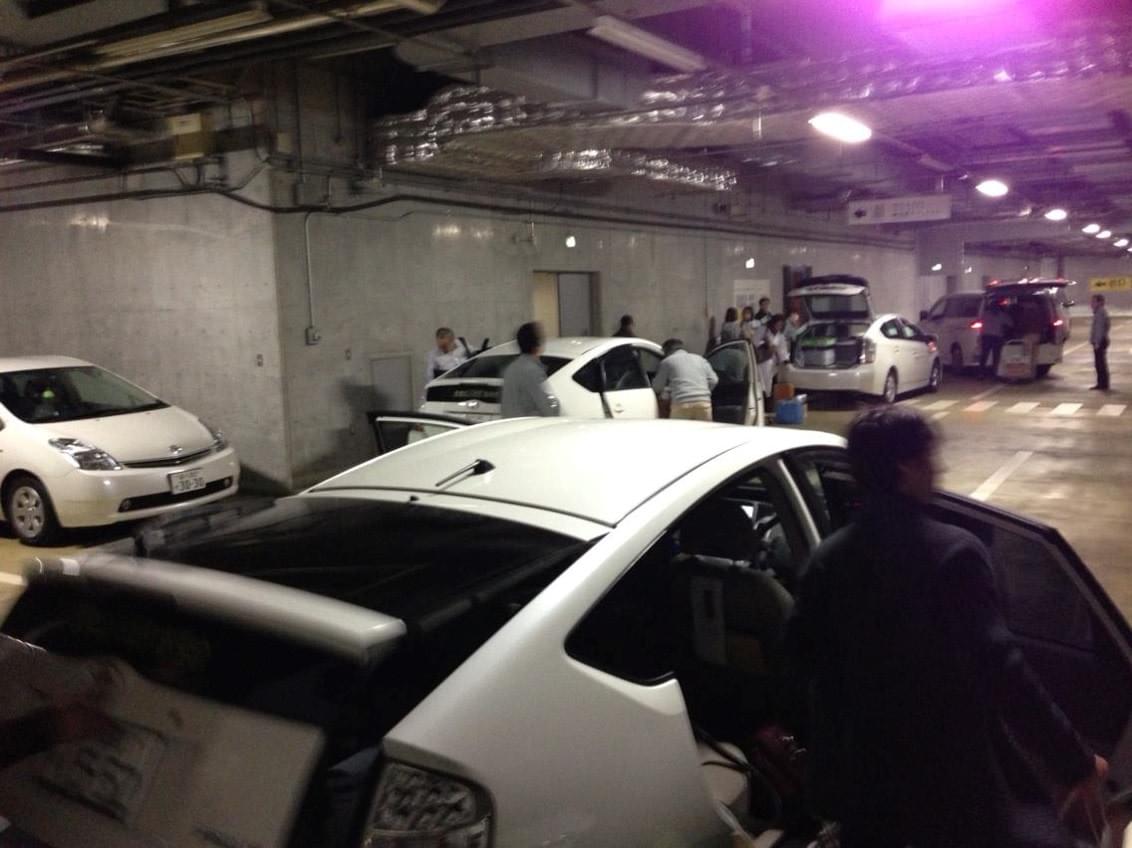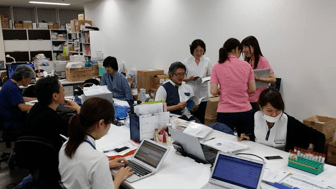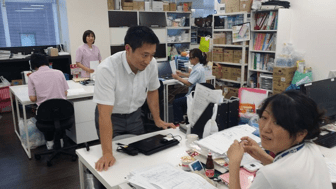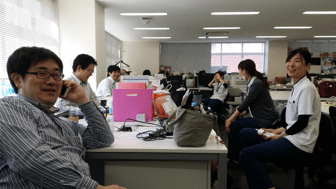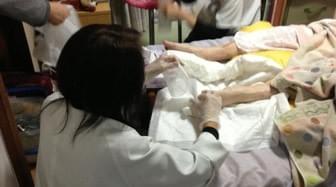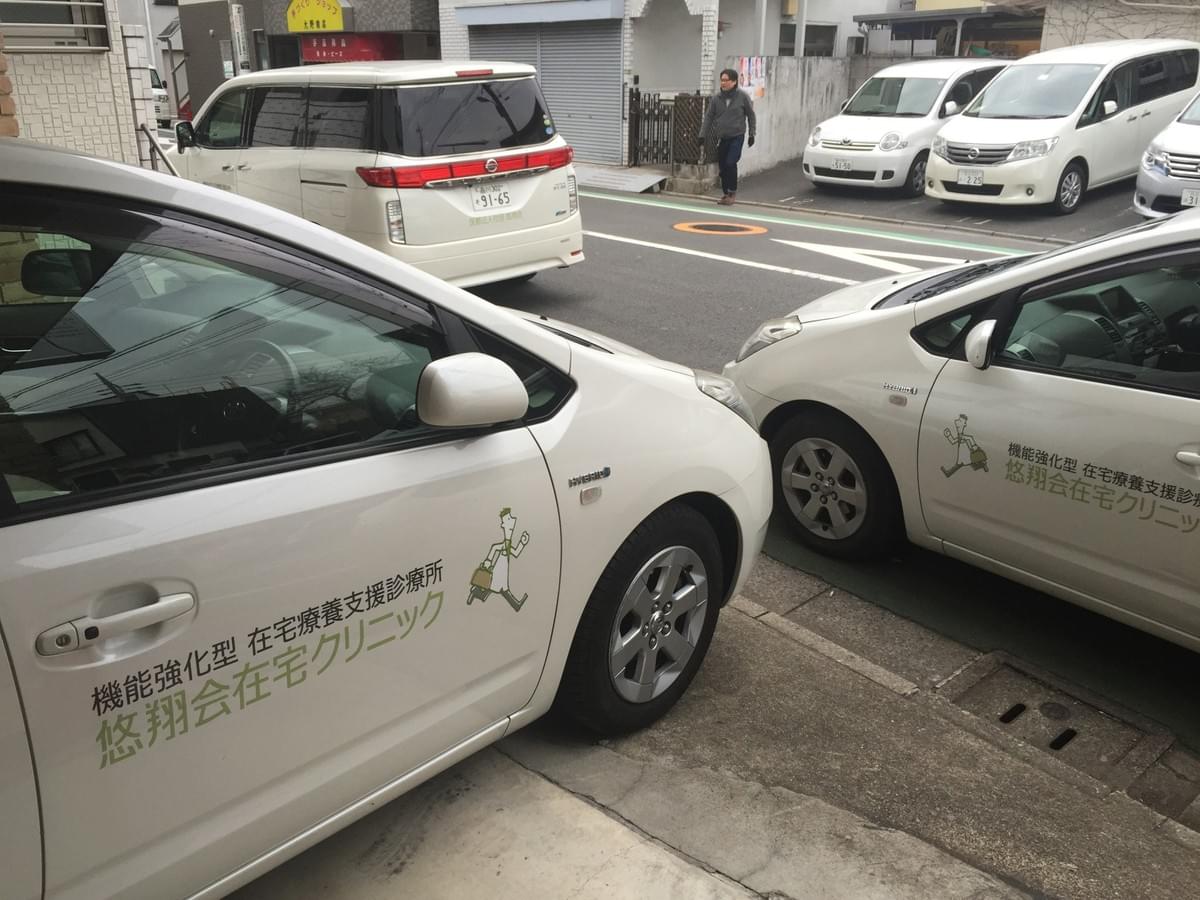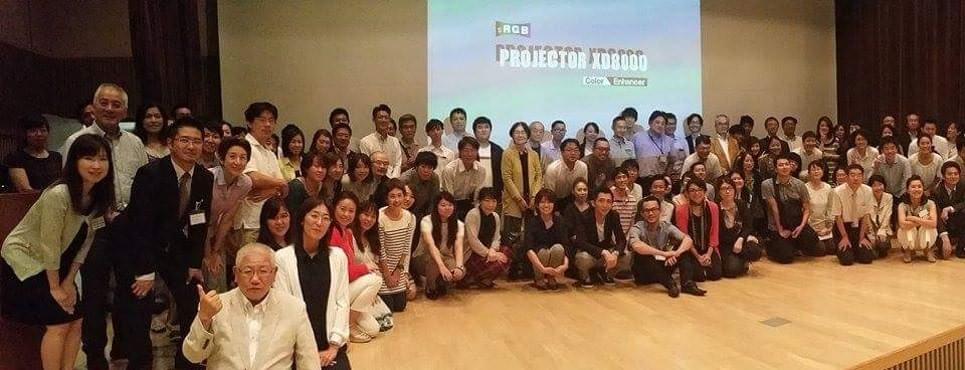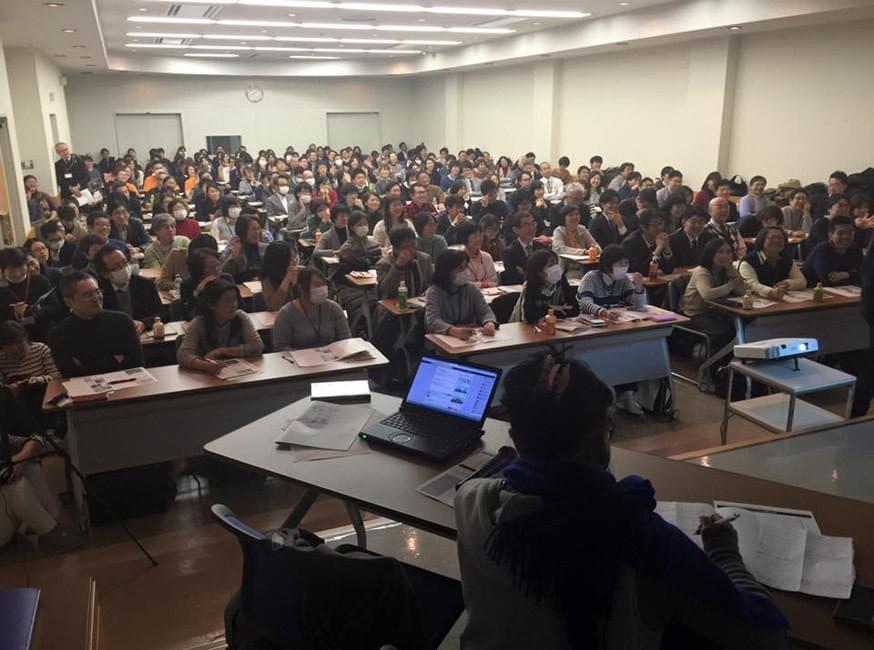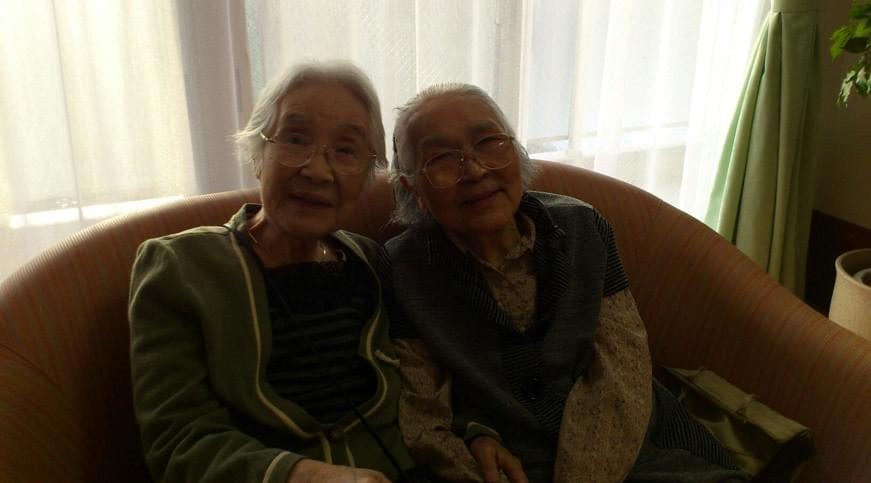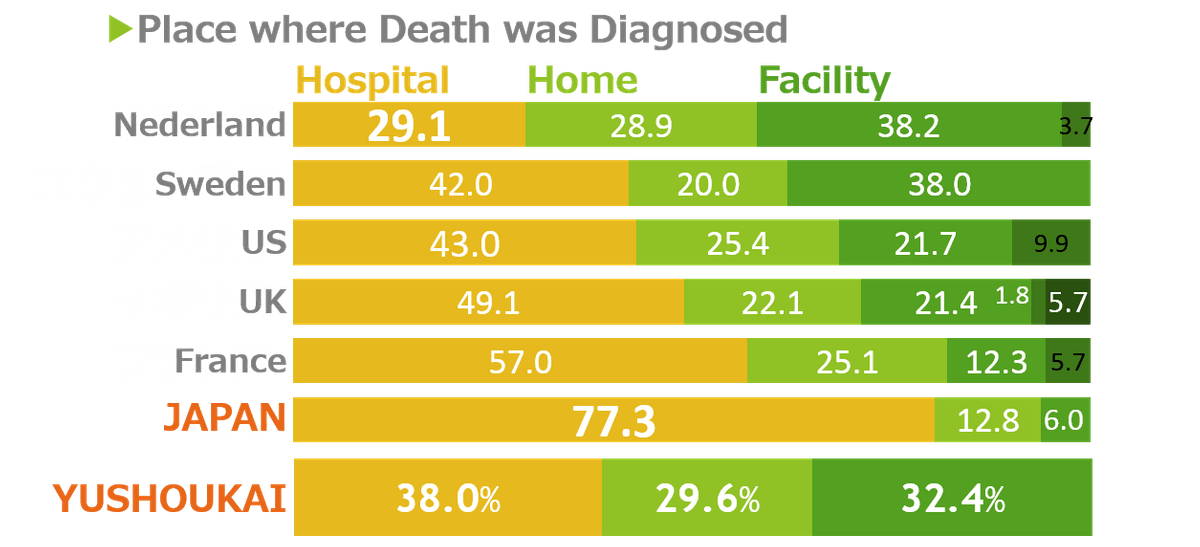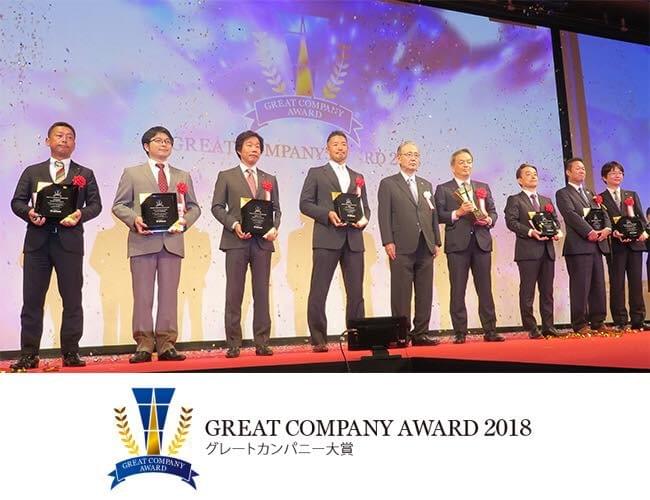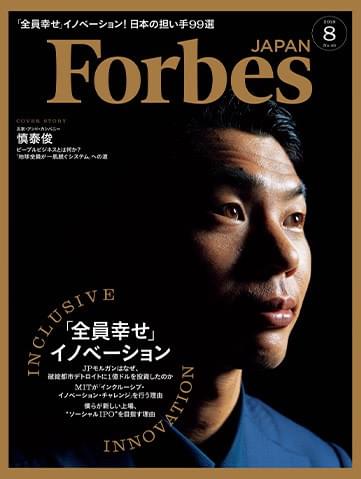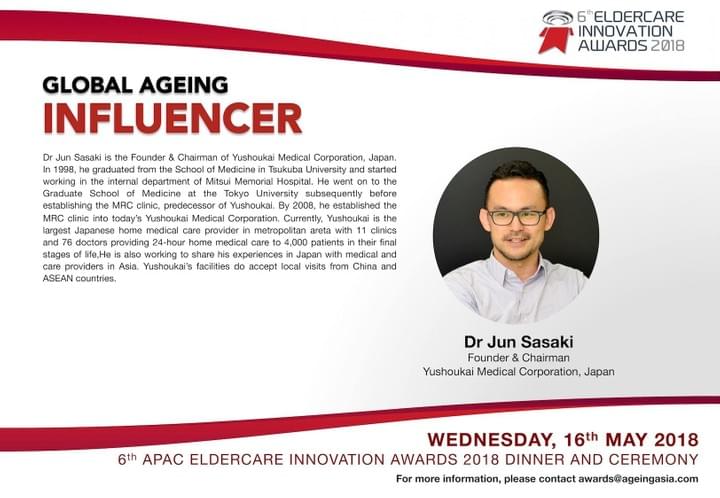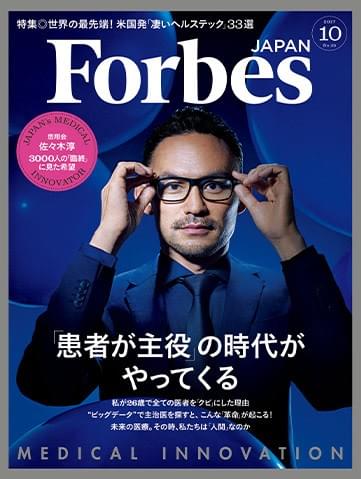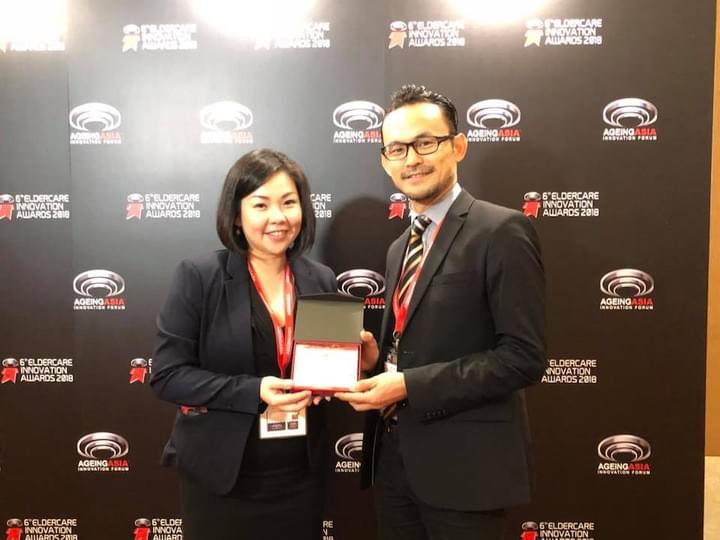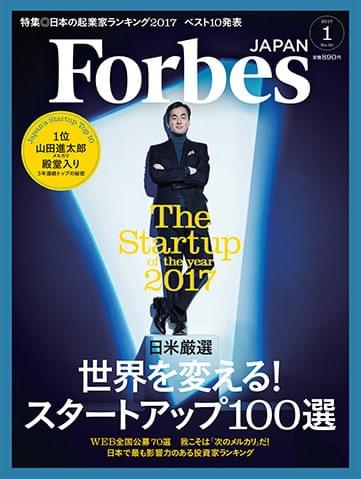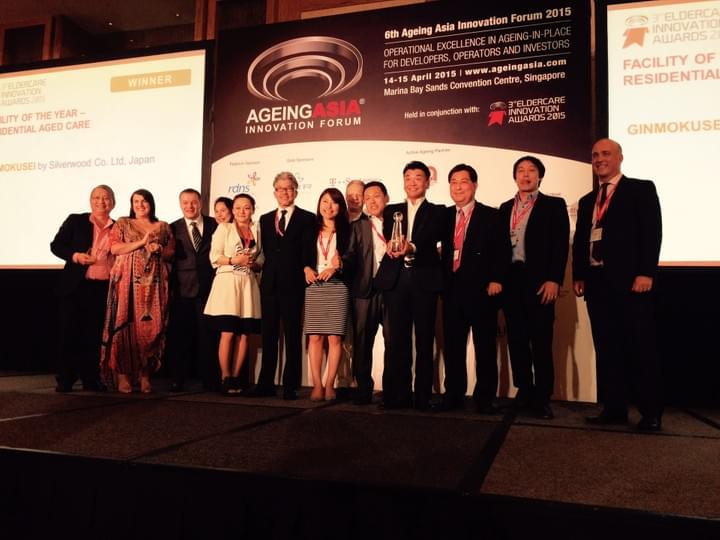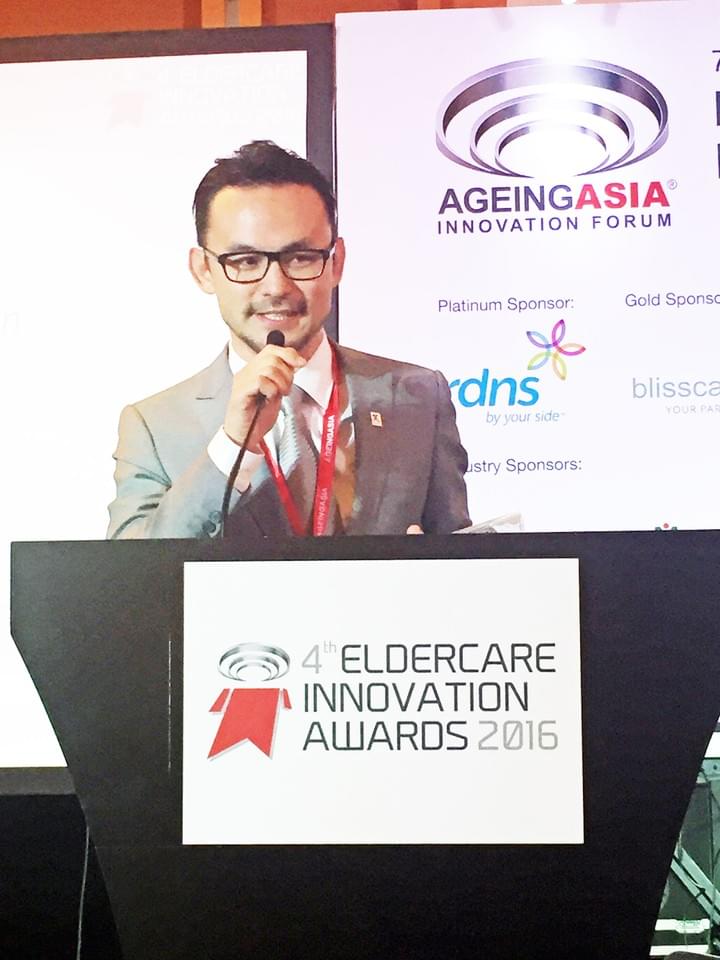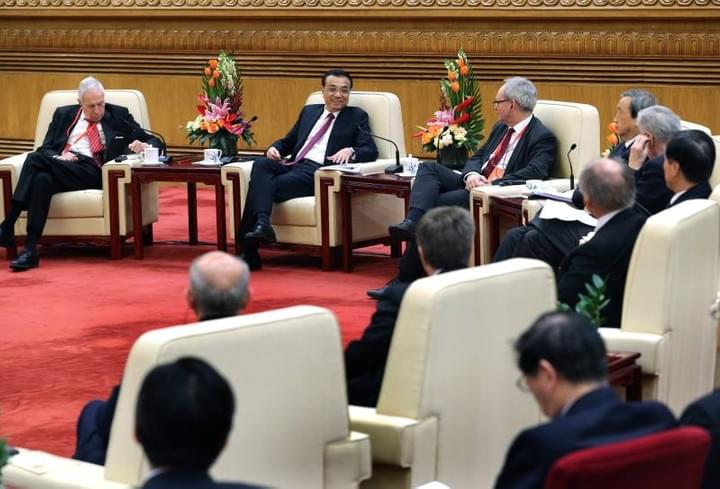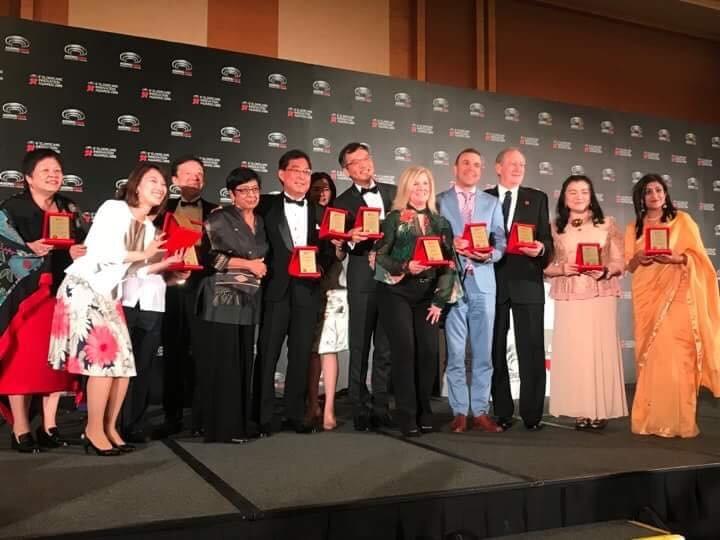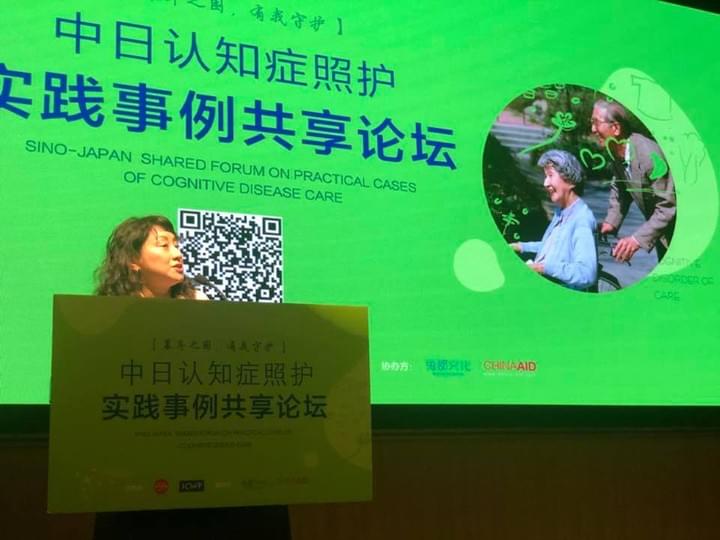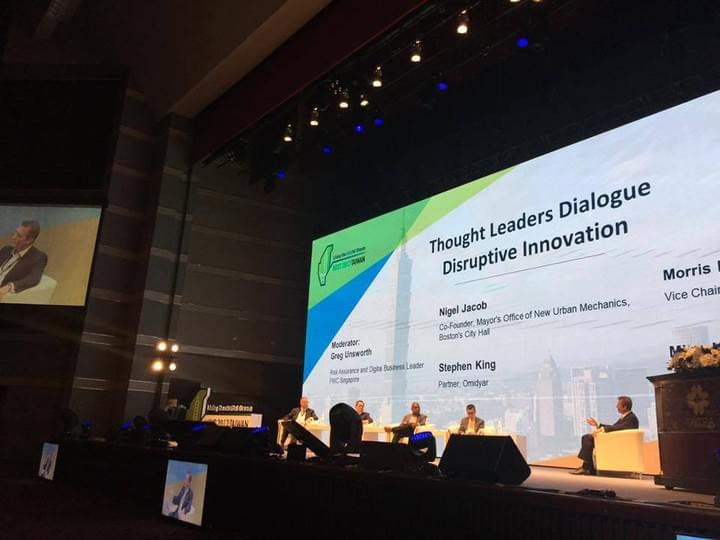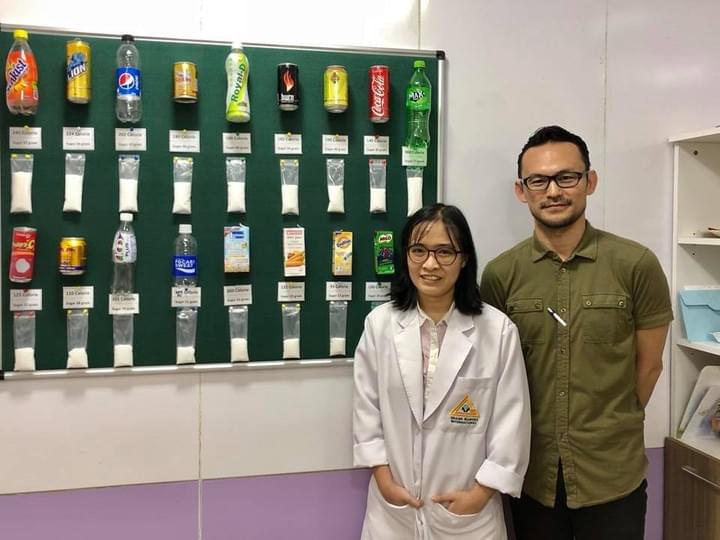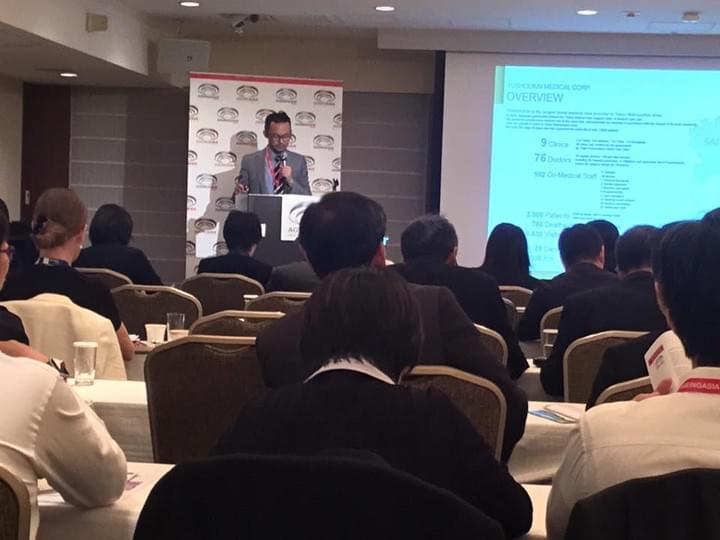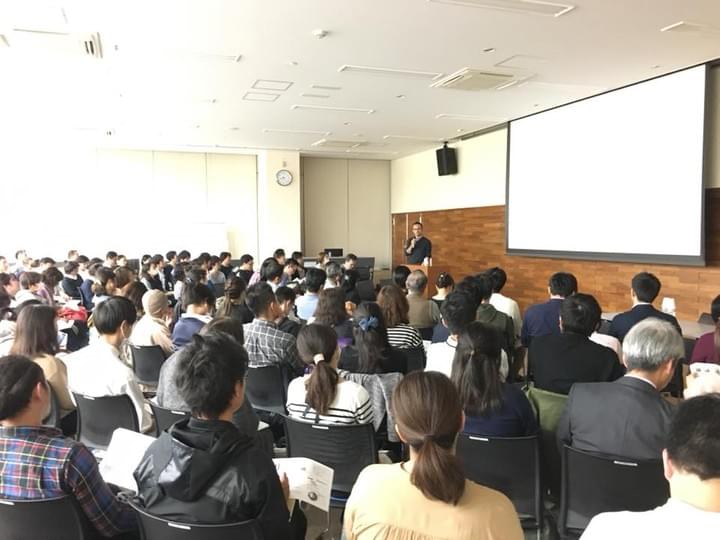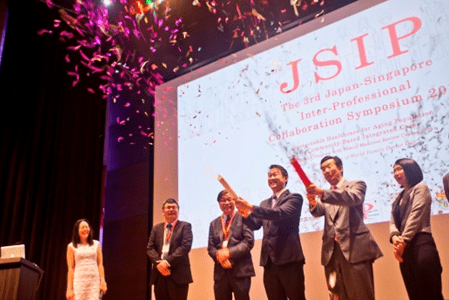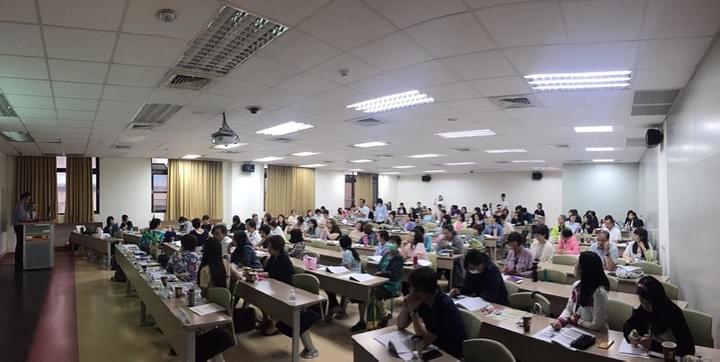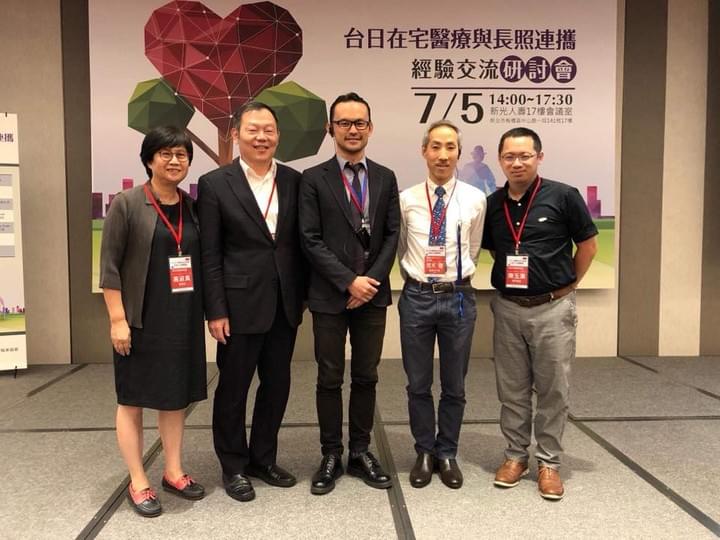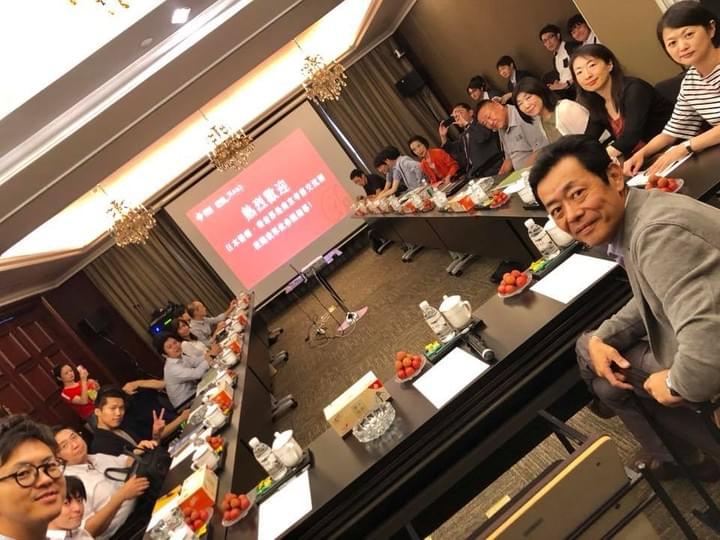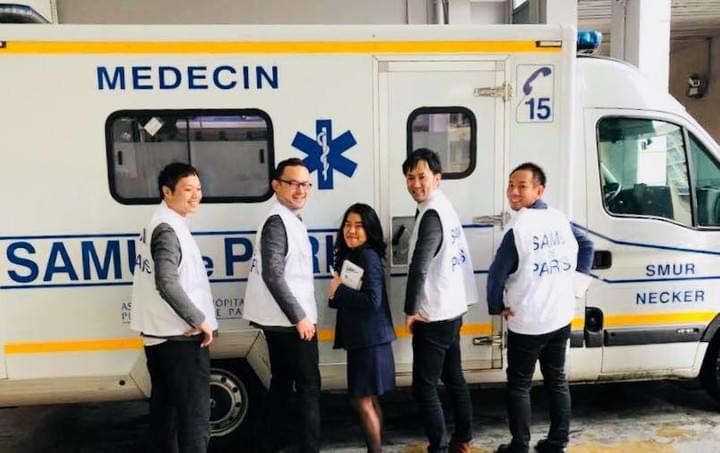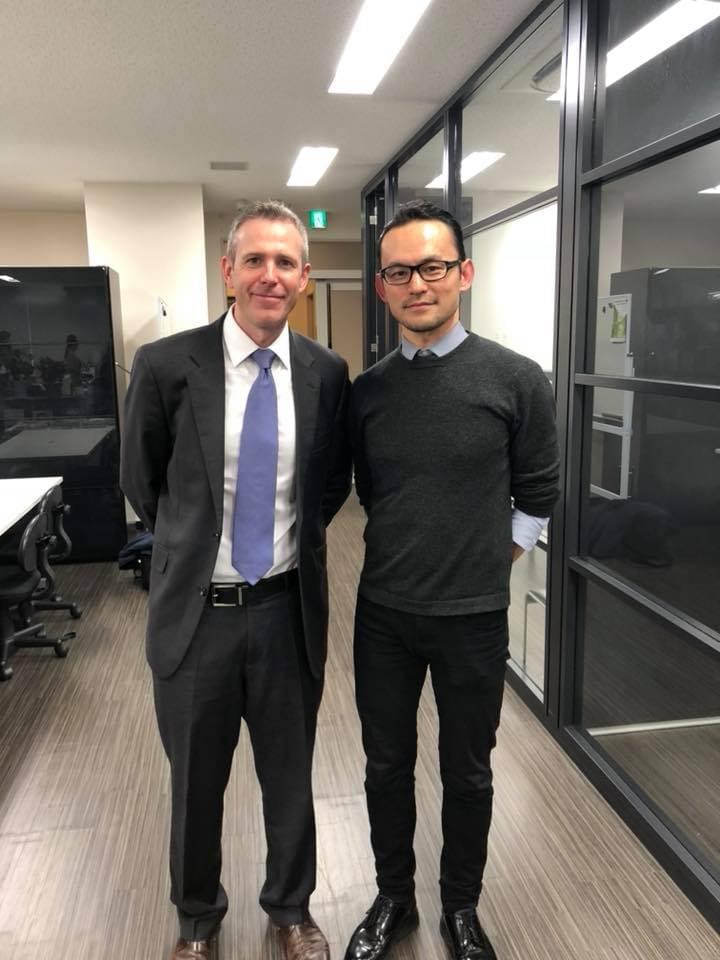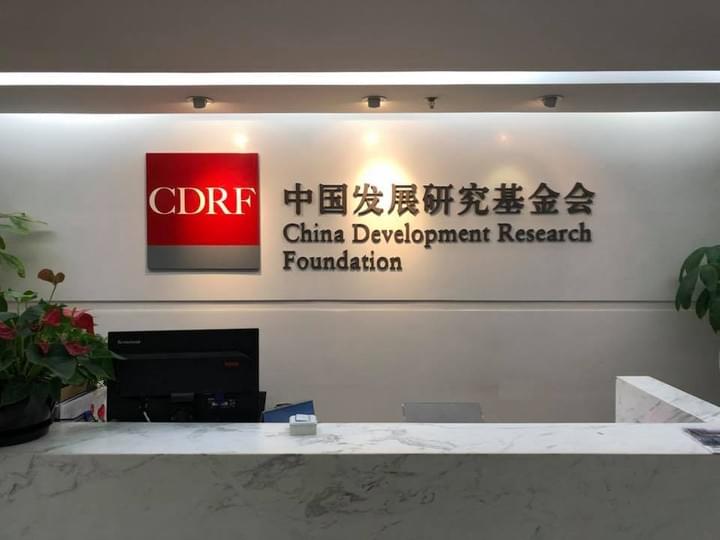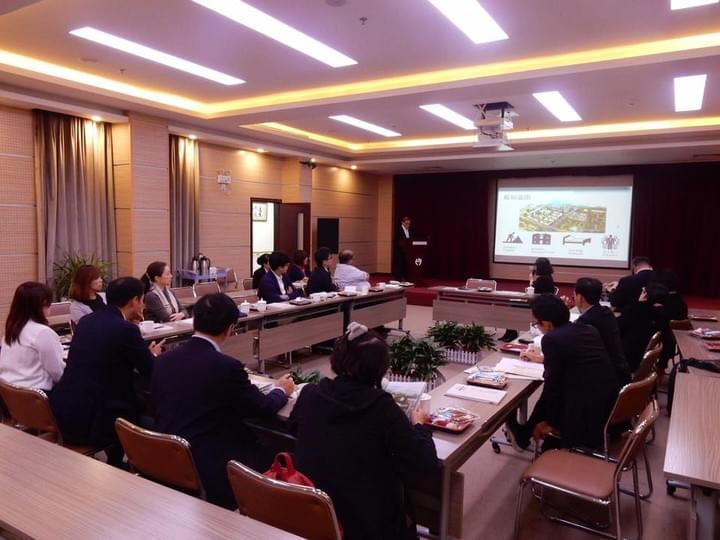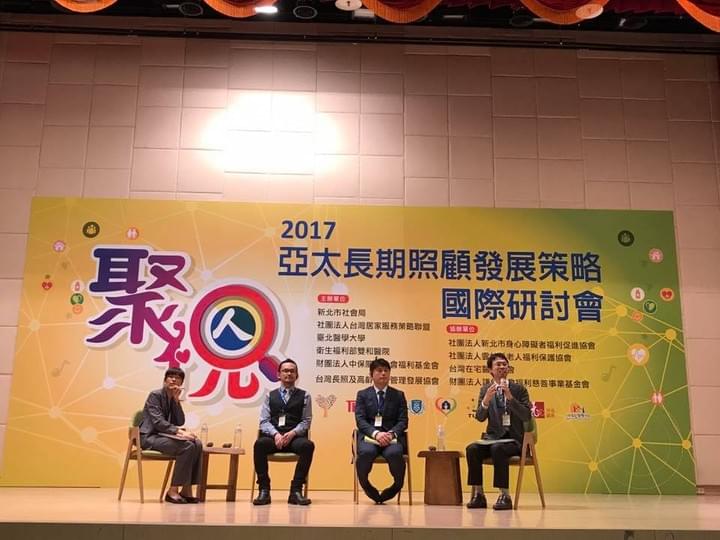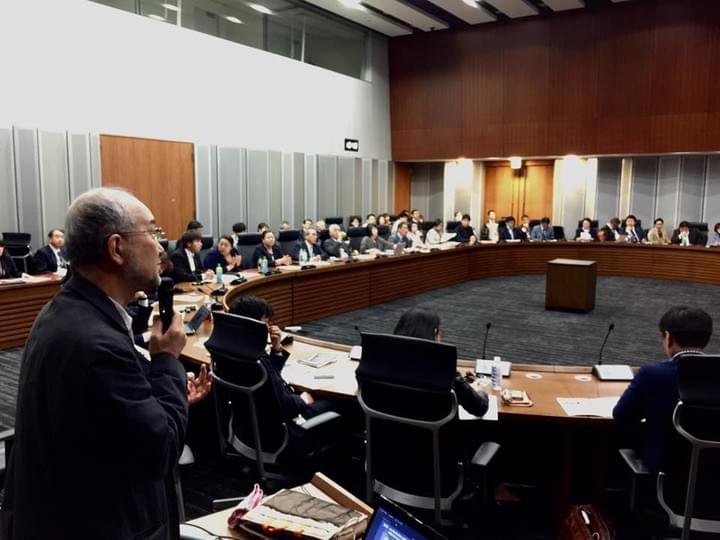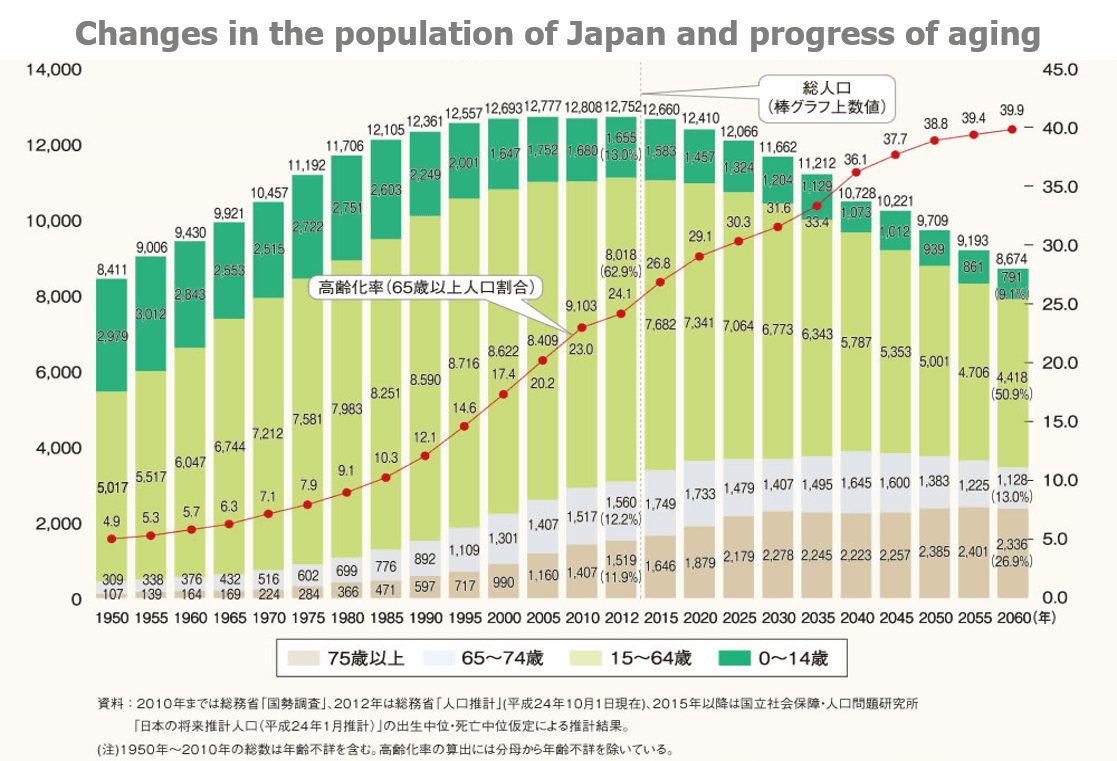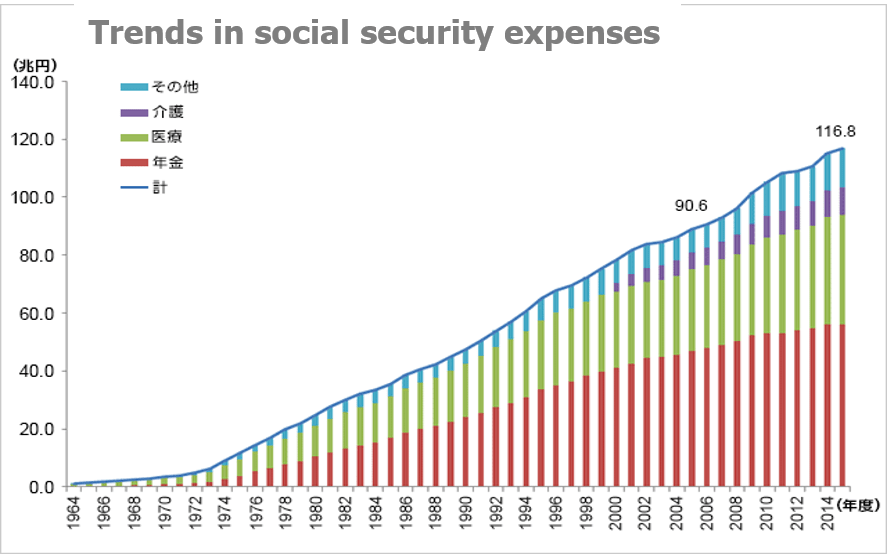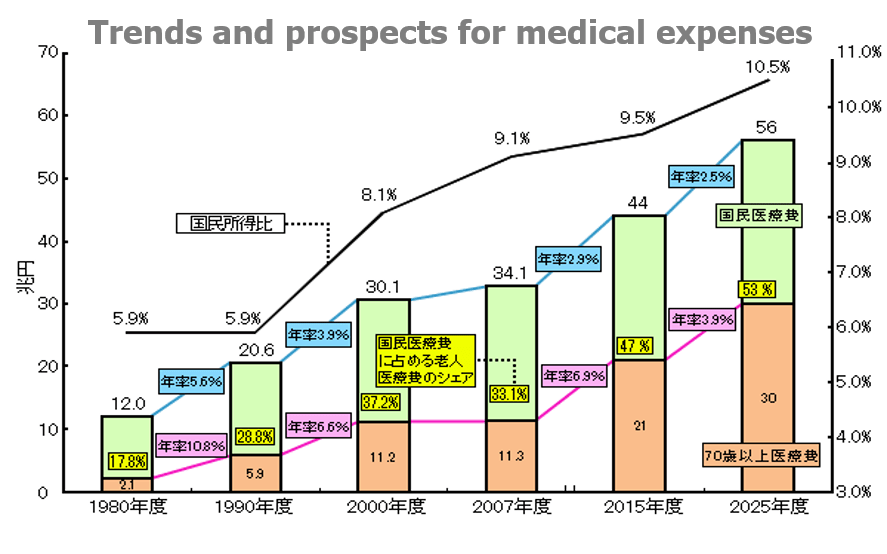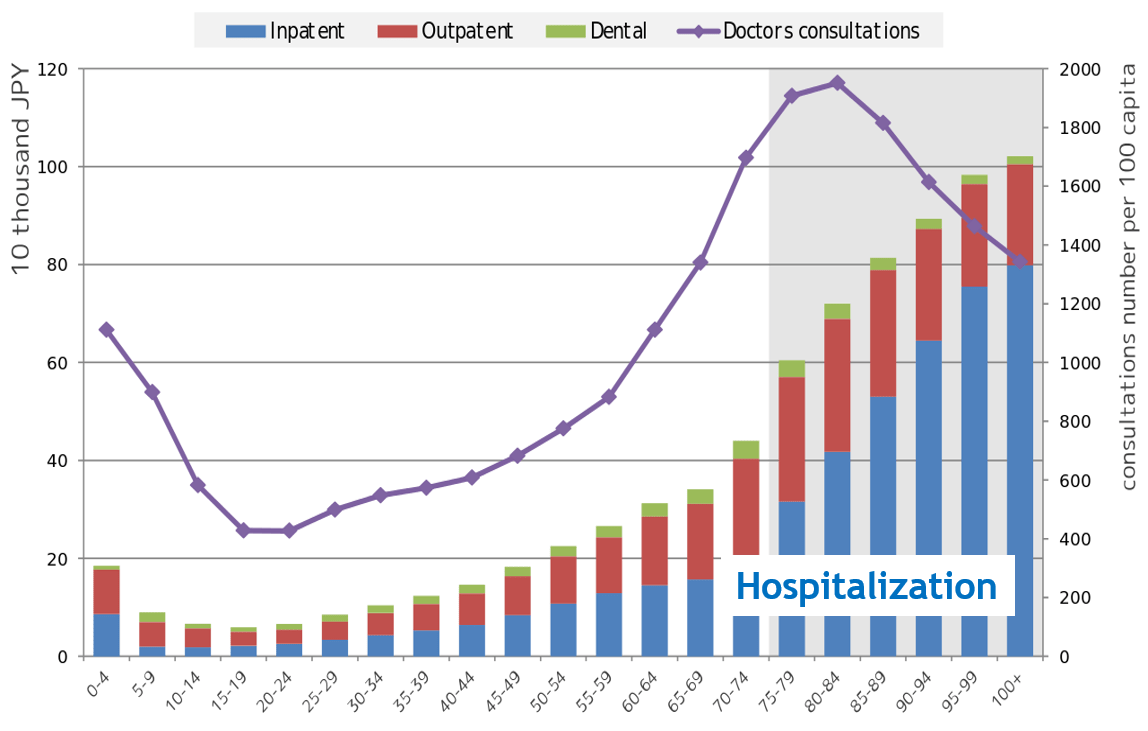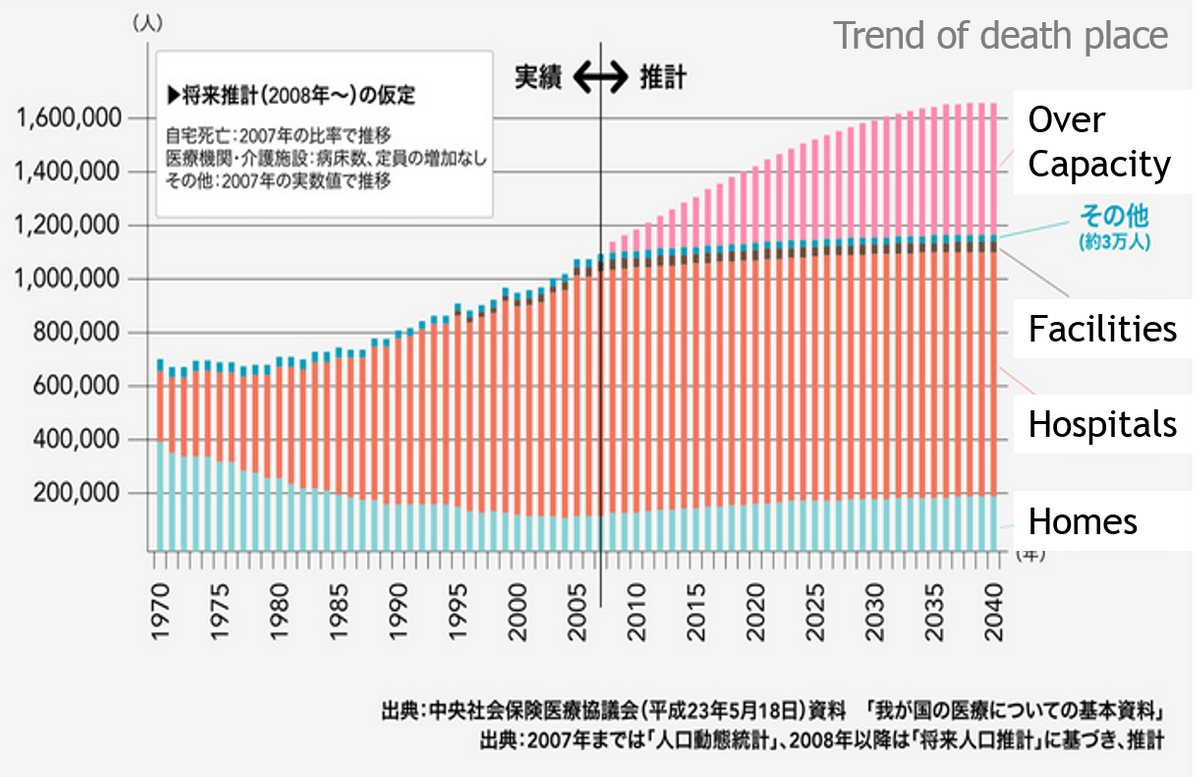
YUSHOUKAI MEDICAL corporation
To make “Super Aged Society”
a Fulfilling Future thorough Home Medical Care
OUTLINE
We are Specialized in Home Medical Care.
We are the Largest Home Medical Care Provider in Tokyo Metropolitan Area
since 2006
We are the largest home medical care provider in Tokyo.
We have 11 clinics in Tokyo Metropolitan Area, and provide comprehensive medical care for 24 hours for the patients who have difficulties to go to hospital by themselves.We started running the first home care clinic at the center of Tokyo in 2006 and we open the new clinic almost every year.
Now, 76 doctors and 100 co-medicals work together and always support about 4 thousands elderly, patients at their terminal stage or patients with special medical needs.
All of our clinics are specialized in Home Medical Care and certified by the government as "High Performance Home Medical Care Clinic" and "Home Palliative Care Enhancement Clinic". That means we have enough power to support patients for 24 hours and satisfactory track records of emergency visits and end-of-life care at home.

We support 5.550 Patients at homes through 125.040 visits by doctors /year. 2.420 Patients newly started home care/year and 1.040 Patients passed away/year.
(from 01/01/2017 to 31/12/2017)
HOME MEDICAL CARE
We visit Patients' Home.
We Visit Patients’ Home regularly, and Support All of Life at Home
to support patients who have difficulties to go to hospital
We visit patients' homes and provide comprehensive and systematic health care.
Most patients are in a situation that is difficult to improve their conditions or functions, and many of them live the final stage of life.Therefore, we provide not only treatment of diseases, but also support their better life with disease and disorders.
In addition to disease management, we provide preventive care, nutritional care, dementia care, palliative care, terminal care and totally support to stay at home until the end.
Human mortality rate is 100%, and we will certainly die someday.Our mission is to make it a satisfactory final chapter, not a tragedy.

Everyday, 36 cars run around the Tokyo with doctors and nurses, and we run over 360,000 km/year.
Multi-professional work
Multi-Occupations provide
Comprehensive Care for 24-hours.
We provide Comprehensive Medical Care by Multi-Occupations for 24 hours
Professionals respond patients needs as a team
It is difficult for a doctor alone to make patients happy.
To keep living well with disease and disorders, medical care is necessary, but it is not enough to support their live.
We cooperate with multi-occupations to reliably respond not only to apparent needs but also to potential needs.
Thereby helping to improve the life of patients and their families,
we support to make the life of patients and their families better as a team.
1. Nutrition Support Team
The biggest risk factor for the elderly is "malnutrition". We will improve nutritional status through team support, maintain good oral function, prevent aspiration pneumonia. Through the prevention of sarcopenia and flailty, we contricbute to the extension of healthy life.

2. Dementia Support Team
With age, the prevalence of dementia increases exponentially. Most elderly people live with dementia. We think Dementia is not just a disease but an aspect of aging. We propose a better life for patients and families by environmental adjustment and care rather than treatment by medications.
3. Palliative Care Support Team
The biggest cause of death among Japanese is cancer. At the final stage of cancer, various symptoms such as pain and malaise appear. Pain also occurs mentally, socially, spiritually. We certainly relax them and promise them a calm days. Also, dysfunction of heart or lung needs special support by the palliative care.
4. Wound Care Support Team
With the deterioration of the general condition, elderly people have high risks of skin troubles and pressure ulcers. It also becomes difficult to cure them. We are sure to treat with multi-occupational team.
supporting network
We enhance the Home Medical Care
throughout the Metropolitan Area.
We also Back up other Clinics in Tokyo Metropolitan Area for 24 hours
Home medical care as "community protecting infrastructure"
To support super-aged society, home medical care is essential function of the community. However, few doctors engage in home medical care. Many of the GP clinics in charge of home medical care are operated by single doctor, and the obligation of "24 hours correspondence" is a heavy burden for them and a big entry barrier for other GPs.We have a specialized team in charge of overtime home medical examination (emergency visit). To provide the function of this team to other GP in the metropolitan area, we will destroy the "24-hour response" barrier of home care and intend to increase the number of GPs who engage in home care.

Four doctors on weekends and two doctors at night time are waiting for the patients calls in the clinic with clinical assistants and nurses.
We respond rapdly to calls from patients 24 hours a day.social education
We nurture a New Community.
To Create the Better Communities
"Home Medical Care College"
We are hosting “HOME MEDICAL CARE COLLEGE” for multi-occupations who engage in home medical care.
This project was started eight years ago as a corporate social responsibility. 14,200 students are registered, and a total of 58,000 people were receiving a lecture.
In this college , 30 courses have been held at the 6 campuses.
The lectures from the top runners stimulate our intellectual curiosity, and "Circle of Learning" spread to areas and occupations.
Through the leanings, we can share the issues, concepts, knowledge and skills of the home medical care.
We are now beginning to involve residents in this 'circle of learning'.
(above) Medical & Care Cafe ADACHI, one of the professionals community in Tokyo Metropolitan Area. We gather monthly and discuss about the issue of their neighbors.
(below) Shimbashi Campus, the main campus of Home medical care college. We open the lecture almost monthly and about 200 students attend the each lecture.

corporate profiles
We are the Social Innovators!
YUSHOUKAI MEDICAL CORPORATION
Organization form: wide area medical corporation institute
Founded: August 2006
(Insurance medical services started as a private clinic)
Corporate foundation: March 2008
Fund: 120 million yen
Representative Director: Jun SasakiCorporate headquarters: Shimbashi Minato-ku, Tokyo 5-14-10 7F
03-3289-0606 (Representative)
03-3289-0607 (FAX)
03-3289-0608 (medical consultation room)03-3289-0609 (Emergency department)
Operated medical institutions:11 places (as of August 2018)
Tokyo(7) + Saitama(2) + Kawasaki(1) + Chiba (1)
Related corporation:
Human Life Management Co., Ltd.
Medical Informatics Co., Ltd.
Home Medical Information System Co., Ltd.
Okinawa Home Medical Information System Co., Ltd.
our core value
“Deliver Happiness to Everyone Involved”
OUR BASIC PRINCIPLE
1. We realize the Growth and Happiness of all of our members.
2. We pursue the Ideal of Home Medical Care.
3. We will contribute to the Creation of a Fruitful Future.YUSHOUKAI is a "Human Group to Make People Happy".
We continue to make efforts to be the most advanced home medical care provider and to pursue the ideals of it.
At the same time, we provide a stage for all members that they can grow up and achieve the purpose of their lives.And to "Deliver Happiness to Everyone Involved", we create a rich future with our own hands.

We provide "Satisfying Life" to all of our patients
OUR RESPONSIBILITY
1. We respect values of patients and their families.
2. We support decision making as they will not regret it.3. We will fulfill accountability to society.
We create "the Best Team" to accept any patient and solve any problems
OUR VISION
1. Regardless of the medical condition or social situation, we will accept any patients with a strong and stable support.
2. We share our ability to the stakeholders in the same community, and contribute to expand the capacity of home medical care.The Needs of the Patients come First
OUR PHYLOSOPHY
1. We think sincerely about the happiness of the patient.
2. We work diligently on what we should do.
3. We continue to grow as a medical person and as a human.
4. We pursue the ideal of quality of the services, not profit.
5. We respond flexibly to the changing needs of society.our outcomes
Our Social Responsibility is to make Positive Results.
Our Outcomes
Annual Report 2018
We provide medical care services by public health insurance.
We not only contribute to patient's happiness but also fulfill accountability to taxpayers and insurers by providing high cost-effective services.
1. Suppression of Emergency Transportation
We keep patient away from ambulance by preventive medical care (prevention of onset, early detection and early treatment at home through 24-hour responce, and preparation of emergency instruction) and advanced care planning.
We are corresponding to
40,980 patient call /year (Equivalent to 16.0% of total annual ambulance dispatch of the elderly aged 75 or older of Tokyo Emergency Headquarters),12,589 emergent visit /year (Equivalent to 54.5% of total annual emergency patient acceptance in major 6 Tokyo public hospitals), and estimated to be saved over
10M USD /year (Medical and Ambulance transfer cost).
2. Suppression of Hospitalization
We remarkably reduced the length and the incidence of hospitalization.
Average annual length of hospitalization/patient in one of our facilty:23.03(days/patient) to 2.30(days/patient)
We achieve 90.0% reduction.
If we apply this to all our patients, it was estimated to save over 72,555 beds /year and 24M USD /year (Medical Expenses)
3. Avoidance of Hospital Death
We provide End-of-Life care at home and remarkably reduced the death at hospitals.
In Japan, 77.3% died in Hospitals.
By our support, 62.0% died at homes or facilities.

4. Prevention of Pneumonia of Elderly
The mortality rate of pneumonia has been increasing continuously in Japan, becoming 3rd cause of death.
The Nutrition Support Team’s performance led to a significant reduction of aspiration pneumonia cases and mortality rates and also contributing to the patients’ QOL at an accessible cost.
Some patients were able to leave tubal feeding and seize back the pleasure of eating.
5. Improvement of Dementia
We can improve dementia by optimizing care environment and medication. Some patients significantly recovered from dementia and regained their own original life.
from founder
JUN SASAKI M.D.
To make "Super Aged Society" a Better Future.
Jun Sasaki M.D./Founder and CEO of Yushoukai Medical Ins.
What do you imagine when you hear the word "Super-Aged Society"?
How many people can confidently say that it is a bright future?
Japan has already become "a Super Aged Society" and is becoming "a Ultra Aged Society".
Currently, Japan's population aging ratio (population over 65 years old) is around 28%, but in the future it reaches equilibrium with 47% and the total population is expected to decrease to about two-thirds in 2060.
It will be such an era that one in two people will become elderly.
We have conventional medical system centered on acute hospitals and social security system premised on inter generational support. They are functioning now, but we are concerned about sustainability.
There is absolutely a shortage of nursing resources supporting the elderly people, and many elderly can not fully finish the satisfying life.
Everyone has wished to be healthy and to live longer.
Longevity means a pleasant achievement that many people can realize it.
It is very sad that it is not welcomed.We are not pessimistic about the future.
We are actively working to make it a better society. I think this is the responsibility for our future generations.The answer for this issue is not on the extension line so far.
Why not throw away the existing values with economic growth?
And let's pursue the real "richness of life" by creating a new community that all the people can live with with peace of mind and satisfaction until the last moment.
Through provision of high quality home medical care, we will actively work on creating a mechanism optimized for the new society of the 22nd century.
Jun Sasaki M.D.
Born in Kyoto on 24/09/1973.
Graduated from Tsukuba University (1998)
General Practitioner and Gastroenterologist in Mitsui Memorial Hospital (1998-2003)
Certified physician of the Japanese Society of Internal Medicine (2003)
Researcher of Doctoral course at the University of Tokyo graduate school of medicine(2003-2006)
The executive director of Institute of Next Generation Home Medical Care Platform.
The director of education of Japan Home Medical Society.
A board member of the Association of Japan Home Healthcare Support Clinics.
A board member of the advisory committee of SOMPO Care.
A board member of the Home Medical and Emergency Collaboration Society
A board member of WAVES Japan Institute.The winner of 4th & 5th Asia Pacific Eldercare Innovation Awards 2016,2017 (“the Best Home Care Provider”)
The winner of Forbes Wellness Award 2016 (Public Service Sector)
Global Ageing Influencer 2018 (elected by Ageing Asia Innovation Forum)PHOTO BY HIROSHI HATANO 幡野広志
AWARDS & PRIZES
We are an internationally recognized social innovator!

Great Company Award 2018
"SPECIAL PRIZE"
FUNAI FOUNDATION
"Great company" is a company that continues sustained growth as a result of refining its own business model that makes it feel "its corporate likeness" based on its high social value and philosophy. Companies that form a unique culture where employees and customers can be proud "a wonderful company" are defined as "Great Company."

SOCIAL INCLUSIVE INNOVATOR 99
FORBES JAPAN 2018/08
We were elected as one of the players of inclusive innovation in Japan. Sasaki was introduced as one of 99 people who challenge new capitalism.

Global Ageing Influencer 2018
Ageing Asia Innovation Forum 2018
Sasaki was elected one of the most influential person in the super aged society domain.

MEDICAL INNOVATOR of Japan
FORBES JAPAN 2017/10
"Patient-centric age is coming" Our patient-centered medical efforts were appreciated, and Sasaki was elected as a medical innovator.
Sasaki became the cover of the magazine.
Best Healthcare Outcomes 2017
5th Asia Pacific Eldercare Innovation Award 2017
Our project to reduce aspiration pneumonia of the elderly by our home nutrition support team was elected as an award.

WELLNESS AWARD of the Year 2017
"Public Sector Grand Prix"FORBES JAPAN 2017/01
We have recognized the contribution to social health,
Together with Saku General Hospital, we were elected as Grand Prix of the Public Sector.
Best Home Care Operator 2016
4th Asia Pacific Eldercare Innovation Award 2016
We are selected as ”Best Home Care Operator" at the Asia Pacific Elderly Care Innovation Award 2016.

Best Innovation Implementation 2016
4th Asia Pacific Eldercare Innovation Award 2016
Our nighttime emergency response cooperation effort was elected as an award as an implementation example of innovation.
International conference / lecture
We share our experiences grobally and we learn from all over the world.

Foreign Expert Consultation Symposium 2018
Beijing, Chinese Government State Council
At the symposium organized by the State Council of China, Sasaki participated as an expert in the medical care area, and proposed Prime Minister Li Keqiang as ideal of a super-aged society.

Ageing Asia Innovation Forum 2018
Singapore
At an international symposium held in Singapore, Marina Bay Sands, Sasaki gave a lecture on community symbiotic society and social capital.

China-Japan Dementia Care Forum
Shanghai
At the China Dementia Care Exchange Practice Forum, Sasaki gave a lecture on concept and medical care for dementia.

Gerontological Dentistry Summer Course 2018
Unitersitas Gadjar Mada, Indonesia
Sasaki gave a lecture at a national university in Indonesia on the theme of medical care to improve the quality of life for elderly people.

Preventive medicine intervention society through food support
Yangon, Myannar
At the Grand Hantha International Hospital, the largest hospital in the city, the largest in Yangon City, we exchanged opinions with local medical experts on how to prevent preventive medicine through food support.

World Congress of Information Technology 2017
Taipei
Sasaki spoke at the international symposium on the possibility of ICT and technology in the medical field and efforts in Japan.

APAC Eldercare International Congress 2017
Shanghai
Sasaki gave a lecture at the international conference on how to optimize medical care for super aged society and efforts in Japan.

APAC Eldercare International Congress 2016
Kuala Lumpur
Sasaki gave a lecture at the international conference on how to optimize medical care for super aged society and efforts in Japan.

Japan-Singapore Inter-Professional Collaboration Symposium 2016
Singapore
Sasaki gave a lecture on healthcare professionals in Singapore on home healthcare efforts in Japan.

居家醫療的失智與緩和照顧研討暨工作坊
Taichung City
At Taichung Zhongshan Medical University Symposium, Sasaki gave a lecture on dementia care, palliative care, and home care in Japan.

台中在宅醫療長照連攜
New Taipei City
Sasaki gave a speech at the Symposium sponsored by the New Taipei City Municipal Government on the efforts towards super aged society in Japan and the concept of community symbiosis society.

Presentation about New Concept of Dementia Care
Nanjung
In Nanjing's largest real estate development company "銀城集団", Sasaki gave a lecture on dementia care and town planning in a super aged society.

Inspection of in-house visit system for elderly patients in Paris
Paris
Sasaki and the management planning team visited an emergency medical system in Paris, a visiting system for elderly patients, and exchanged views.

Medical device in primary care of super aged society
GE Healthcare
We exchanged opinions with global manager of GE primary care department and briefing on home health care and elderly medical care in Japan, and also informed about clinic's management system.

Issues on medical care, nursing care and welfare in super aged society
Beijing, China Development Research Foundation
At the Chinese government think-tank, Sasaki gave a lecture on medical, care and welfare issues in super aged society.

Issues of medical care in super aged society
Beijing, Municipal Government
In Beijing Municipal Government, Mr. Sasaki talked about Japanese home care medical care efforts.

Asia-Pacific Long-Term-Care Development Policy International Symposium 2017
New Taipei City Municipal Government
Sasaki gave a lecture on home medical care and long-term care in Japan.

China-Japan Dementia Care Exchange Program
TOYOTA Foundation
Sasaki participated as a medical specialist in the Japan-China dementia care international exchange program subsidized by the Toyota Foundation.
- Contact Us
Don't be afraid to reach out. You + us = Awesome.
Shimbashi Square 7F
5-14-10 Simbashi Minato Tokyo
JAPAN 105-0004MON-FRI 09:00-18:00
Emergency 24 hours81-3-3289-0606 BACK GROUND of our challenge
Population Aging and Population Decrease in Japan
Japan is Super Aged Society and
Tokyo is the World's Most Aged City
Background of our Challenges
Over 6 million elderly people live in Tokyo Metropolitan Area.
The Aging of Urban Areas is the first experience in the world.Tokyo is Facing the Problems due to Healthcare for Elderly.
Elderly people are difficult to go to hospital.Health management is difficult, and it is easy to suddenly change / deteriorate.
The number of elderly people who use ambulances or are hospitalized is rapidly increasing. People with Dementia is also increasing and medical expenses for the elderly are also increasing rapidly.

In 2060
-Aging Rate 40% (over 65 years old population)
-Population Reduction Rate 28% (compared to 2010)
-Working Population 47%
-Under 20 years old 13%
-Dementia People 13%
4 Big Problems Japan/Tokyo is Now Facing
【1】Rapid Increasing of Social Security Expenses
【2】Rapid Increasing of Hospitalization of Elderly.
【3】Rapid Increasing of Death
【4】Rapid Increasing of Dementia【1】 Rapid Increasing of Social Security Expenses

Medical expenses are increased by 1 trillion yen and Nursing care expenses by 500 billion yen, every year.
And 50% of medical expenses �are used by elderly people.

【2】 Rapid Increasing of Hospitalization of Elderly
Most of the elderly medical expenses are due to hospitalization.
Elderly people aged 75 and older use an average medical cost of 7000$y.
-Increase in chronic disease
-Hospital bed as evacuation destination for elderly
-Life extension treatment
-Death in the hospitalEmergency transport of elderly people seven times in 10 years

【3】 Rapid Increasing of Death
In Japan, 1.3 million people died annually, and 80% die in hospitals despite 70% of Japanese want to spend the last at home.
Hospital death can not be increased any further.
There will be a shortage of 400,000 deaths in 2040.
メディア関連
講演・執筆・取材
悠翔会の本
採用情報
入職をご希望の方へ
© 2018 YUSHOUKAI MEDICAL CORP. ALL RIGHT RESERVED

